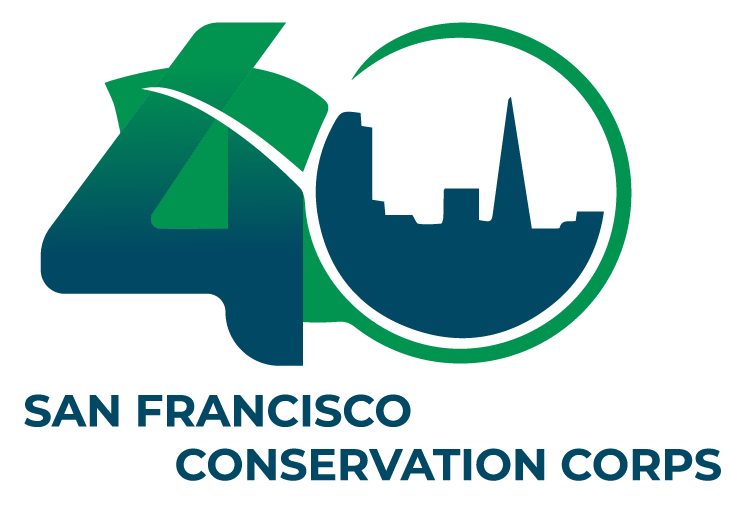Mission Statement
“The San Francisco Conservation Corps motivates and connects youth with inspiring work, quality education, and a better future.”
History of the San Francisco Conservation Corps
In 1983, then-Mayor Dianne Feinstein and the Honorable Justice J. Anthony Kline founded the San Francisco Conservation Corps, creating the first urban municipal youth corps in the nation.
In that first year, 24 young adults joined the Corps. They received basic job training and worked on projects to conserve and improve San Francisco’s environment.
The new Corps drew on the legacy of President Franklin Roosevelt’s Civilian Conservation Corps. Roosevelt founded the Corps in 1933 to create paid work for thousands of people struggling with unemployment during the depression. The Corps worked on projects to enhance the country’s natural resources at a time when the land was being ravaged in the dust bowl. Over the nine years of its existence, Roosevelt’s CCC planted almost 3 billion trees and provided work experience for almost 3 million men.
The San Francisco Corps also grew out of the model of the California Conservation Corps, a statewide Corps founded in 1976 with goals similar to the Civilian Conservation Corps. The California Corps is still going strong.
SFCC has grown from a basic education and training program into a robust academic, job training, work readiness, and life skills experience for over 100 young adults each year.
Since 1983, over 5,000 young people have taken the challenge to become Corpsmembers, working 5 million hours on hundreds of landscaping, conservation, recycling, and playground renovation projects to enhance the environment and communities of San Francisco. Throughout this work, thousands of Corpsmembers have gained academic, environmental, and work skills.
Today, SFCC is joined by 13 other local Corps throughout California, through the California Association of Local Conservation Corps. All of these Corps work with young men and women to enhance the environment through recycling, conservation, parkland improvements, and more. Corpsmembers also attend academic classes, learn about conservation, and develop job skills through their public service work. Additionally, SFCC is an active member of the national Corps movement, The Corps Network. The Corps Network represents over 100 Corps and more than 21,000 Corpsmembers, providing a wealth of conservation, infrastructure improvement, and human service hours to communities around the country.

